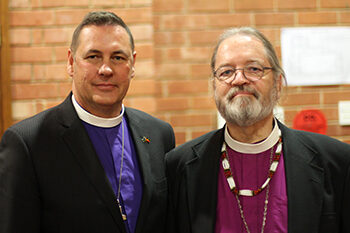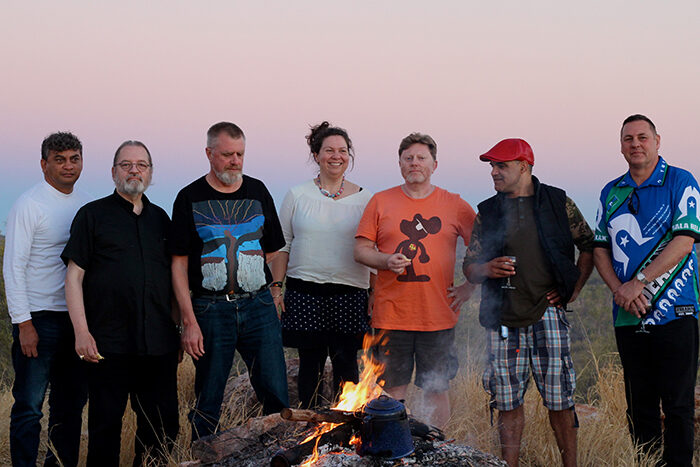ABM Archive Website
THIS WEBSITE CONTAINS ARCHIVE MATERIALS FOR HISTORICAL REFERENCE ONLY
For up-to-date information, including our latest appeals, news, and resources, please visit our current website.
Time to confront the ‘Doctrine of Discovery’ says Indigenous Bishop
August 17, 2017

Bishop Mark MacDonald, the National Indigenous Bishop of the Anglican Church of Canada spoke about the Reconciliation journey of the Canadian Church during his recent Australian visit.
During a forum in Adelaide, Bishop Mark was asked to nominate the ‘blind spots’ of the Australian Church in relation to reconciliation. He spoke of the experience of Canadian Anglicans in unveiling and seeking to repudiate the Doctrine of Discovery.
“The Doctrine of Discovery describes a habitual way of thinking that continues to marginalise, dehumanise and downgrade Indigenous people,” said Bishop Mark.
“At the heart of the doctrine is the idea that Indigenous people are a primitive form of human life who are therefore discoverable. This hidden assumption causes us to look at Indigenous people as people who need to be updated. Who need to be westernised or civilised in order to have any sort of happy life. It doesn’t look at Indigenous people as people of a distinct and worthwhile cultural. It doesn’t value their gifts and talents and ideas.”
According to Bishop Mark, the Doctrine of Discovery is at the heart of the mistreatment of Indigenous people that is historical and ongoing. Bishop Mark visited Australia at the invitation of National Aboriginal Bishop, Chris McLeod, both pictured above, and the Anglican Board of Mission (ABM).
He was a keynote speaker at the Melbourne Diocesan Ministry Conference where he spoke on Incarnation, Indigenous Life and God’s Mission. Pointing to the growth of Indigenous churches, Bishop Mark suggested that the Western church has much to learn from Indigenous wisdom – especially when facing the task of incarnating and inculturating the Gospel for younger generations.
From Melbourne, Bishop Mark headed to Central Australia where he joined Bishop Chris McLeod and a group of Aboriginal and Torres Strait Islander Anglican leaders for retreat. The group spent time in prayer, story-telling, sitting together in country and prophetic imagining about the future of the church.
Canada and Australia both share a sad history of placing indigenous children into institutions.
The group visited the Bungalow (now the Telegraph Station) where many Aboriginal kids grew up. They also spent an evening with Rev’d Brian Jeffries and the former residents of St Mary’s, an Aboriginal children’s home which was once supported by ABM.
The retreat ended in an evening around the campfire with local Arrente elders and other Alice Springs residents, sharing stories of land and spirit. It was a fitting end to a very moving time characterised by shared grief and laughter, and a marked spirit of unity in diversity.
Bishop Mark’s visit and the Alice Springs retreat were made possible by donations to ABM’s Reconciliation project. Videos from Bishop Mark’s time in Adelaide can be found on ABM’s YouTube channel.
 |
| The group on retreat at the top of Undoolya Hill. From Left to Right: Rev Victor Joseph, Bishop Mark MacDonald, Rev Glenn Loughrey, Rev Helen Dwyer, Rev Dr Garry Deverell, Bob Slockee and Bishop Chris McLeod. © ABM/Celia Kemp, 2017. |


